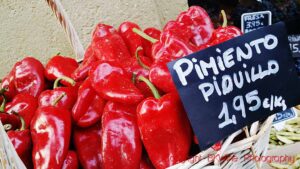
Why does the wine have aromas of pepper?
The fact that wine is a lot about chemistry has probably not escaped anyone. (After all, everything is chemistry.) However, you don’t need to know anything about chemistry to enjoy a wine. But sometimes you

The fact that wine is a lot about chemistry has probably not escaped anyone. (After all, everything is chemistry.) However, you don’t need to know anything about chemistry to enjoy a wine. But sometimes you

Who has not at some point felt petroleum aroma in a wine, most likely in a riesling? This slightly odd aroma is often associated with older, mature riesling. There has been discussion about where the

Mousiness, or a mousy wine, is a relatively “new” wine fault. Going back a decade or a bit more, it was rarely talked about. Maybe it didn’t even exist. Today, it is more common, partly
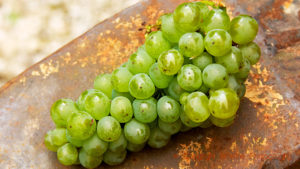
Winegrowers all over France, yes, all over the world, organic as well as conventional, spray the vines with copper against the severe fungal disease downy mildew (mildiou). There are, regretfully, very few realistic alternatives to
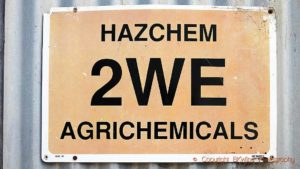
A colleague in the industry that I spoke to the other day said when we discussed spraying the vineyards, “Can’t they just ban everything dangerous?” Yes, that sounds like a good idea, in theory. But
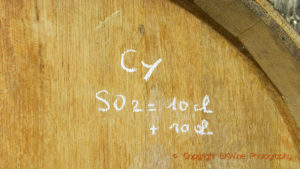
From being a fairly unremarkable additive in most wines, sulphur dioxide has recently turned into a burning topic of discussion for wine enthusiasts. SO2 is added to the wine to protect it from premature oxidation.

Wine defects. No-one wants them. But what is it really? Numerous things can spoil a wine. No doubt many wines were spoilt back in the old days when wine producers had little knowledge of wine
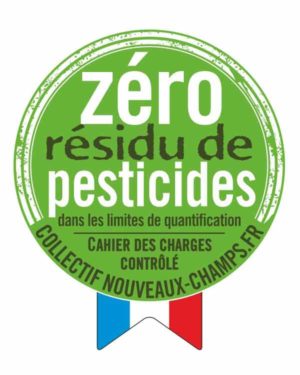
There are different ways to work sustainably and environmentally friendly. Some producers have noted consumers’ fear of pesticide residues in the wine. One path to take is then to work organically and thus completely exclude
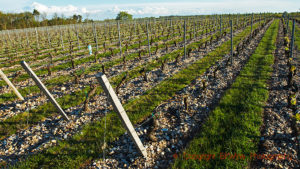
27 appellations in the Anjou and Saumur regions in the Loire Valley have recently published their new rules and regulations. The big news is that they all now prohibit chemical weed removal. These 27 AOPs

The discussion about the future of glyphosate continues. It is very contested if glyphosate is dangerous or not at all dangerous (when properly used). In 2022, it will again be on the EU agenda, until
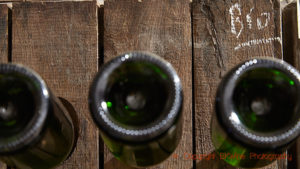
New rules came into force for vinification of organic wines on January 1st, 2019. Six new additives are allowed. Autolysate of yeast: Nourishes the yeast during the alcoholic and malolactic fermentation. Inactivated yeast: Nourishes the
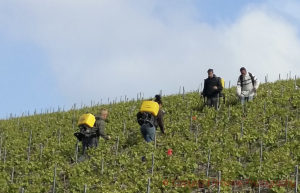
During our spring wine tours we have visited the small and interesting Champagne house Philipponnat. On our visit in early May we saw people working in their prestigious vineyard Clos des Goisses with knapsack sprayers

The future in Europe for glyphosate, a substance used in the well-known Round-Up and other herbicides, is uncertain. The EU was supposed to have taken a decision on this issue at the end of October
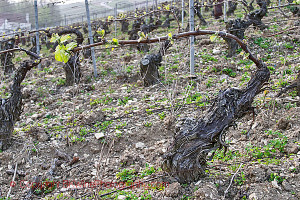
Some of the worst problems in the vineyards right now are esca and eutypiose, fungal diseases that affect the wood of the vine. There are no pesticides available since toxic sodium arsenite was banned some
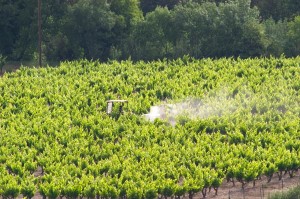
Whether you are organic or not, you have to spray against fungal diseases like downy mildew and powdery mildew. The organic growers use copper and sulphur and the conventional growers use synthetic chemical pesticides. To
The debate around glyphosate continues. The product is used as an herbicide, in for instance Roundup. It has been, since a while back, on EU’s list of unsafe products that maybe should be phased out.
Organic producers are criticized for their use of copper in the vineyards. The EU allows 6 kilograms of copper per hectare and per year for organic producers, as we mentioned recently (Organic viticulture: How do
The European Commission has recently published a list of 26 active substances used in viticulture that should eventually be replaced, because of their danger to people or the environment. On the list are copper sulphate,
It does not matter if you are organic or not. All vineyards can suffer from various diseases. Against certain fungal diseases, downy mildew for example, you can spray with copper, usually in the form of
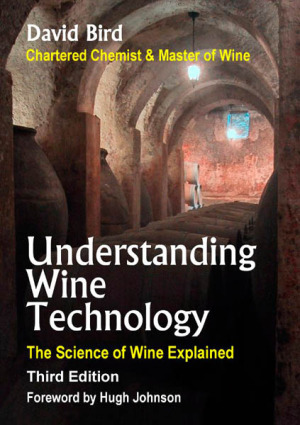
The making of a wine is much about chemistry. Without knowledge of chemistry it becomes difficult to really understand what is going on inside the winery. It is hard to find good literature about wine
At the end of May, the EU Commission will decide whether to keep the present levels of copper permitted for organic growers or if the levels should be reduced. Currently, organic growers are allowed to
It can be costly to refuse to spray against the grasshopper that spread the disease flavescence corée. Flavescence dorée is a bacterial disease that weakens the vine. The only thing you can do to prevent
A new must-have (?) wine gadget I just discovered a brand new “device” to keep an opened bottle of wine fresh for a long time: Coravin. A clever little thing that with which you don’t
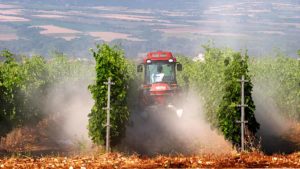
The discussion about organic or not organic is often about the taste of the wine. Maybe there should be a greater focus on the possible harmful effects that pesticides can have on people working with
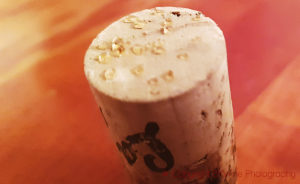
Coravin lets you drink the wine without pulling the cork. At a price. There are various devices that you can use to keep your wine longer after you have opened the bottles and a new
Is it possible to replace the antioxidant and anti-bacterial properties of sulphur with a preservative made from grape seeds? Yes, that is the idea of Intergrapes in Italy after seven years of study. They claim
Copper is an effective way to fight the fungal disease mildiou. However, spraying too much copper in the vineyard is not good for the soil and the water and this has been known a long
The use of sulphur to be banned? To disinfect oak barrels by burning sulphur inside is a century old tradition. Now the procedure could become illegal. According to the EU rules sulphur tablets is classified
In Vino Analytica Scientia” is an international symposium focusing on wine chemistry and sensory analysis. The next edition will take place on 2-4 July 2009 in Anger in the Loire Valley. They will be calling

The fact that wine is a lot about chemistry has probably not escaped anyone. (After all, everything is chemistry.) However, you don’t need to know

Who has not at some point felt petroleum aroma in a wine, most likely in a riesling? This slightly odd aroma is often associated with

Mousiness, or a mousy wine, is a relatively “new” wine fault. Going back a decade or a bit more, it was rarely talked about. Maybe

Winegrowers all over France, yes, all over the world, organic as well as conventional, spray the vines with copper against the severe fungal disease downy

A colleague in the industry that I spoke to the other day said when we discussed spraying the vineyards, “Can’t they just ban everything dangerous?”

From being a fairly unremarkable additive in most wines, sulphur dioxide has recently turned into a burning topic of discussion for wine enthusiasts. SO2 is

Wine defects. No-one wants them. But what is it really? Numerous things can spoil a wine. No doubt many wines were spoilt back in the

There are different ways to work sustainably and environmentally friendly. Some producers have noted consumers’ fear of pesticide residues in the wine. One path to

27 appellations in the Anjou and Saumur regions in the Loire Valley have recently published their new rules and regulations. The big news is that

The discussion about the future of glyphosate continues. It is very contested if glyphosate is dangerous or not at all dangerous (when properly used). In

New rules came into force for vinification of organic wines on January 1st, 2019. Six new additives are allowed. Autolysate of yeast: Nourishes the yeast

During our spring wine tours we have visited the small and interesting Champagne house Philipponnat. On our visit in early May we saw people working

The future in Europe for glyphosate, a substance used in the well-known Round-Up and other herbicides, is uncertain. The EU was supposed to have taken

Some of the worst problems in the vineyards right now are esca and eutypiose, fungal diseases that affect the wood of the vine. There are

Whether you are organic or not, you have to spray against fungal diseases like downy mildew and powdery mildew. The organic growers use copper and
The debate around glyphosate continues. The product is used as an herbicide, in for instance Roundup. It has been, since a while back, on EU’s
Organic producers are criticized for their use of copper in the vineyards. The EU allows 6 kilograms of copper per hectare and per year for
The European Commission has recently published a list of 26 active substances used in viticulture that should eventually be replaced, because of their danger to
It does not matter if you are organic or not. All vineyards can suffer from various diseases. Against certain fungal diseases, downy mildew for example,

The making of a wine is much about chemistry. Without knowledge of chemistry it becomes difficult to really understand what is going on inside the
At the end of May, the EU Commission will decide whether to keep the present levels of copper permitted for organic growers or if the
It can be costly to refuse to spray against the grasshopper that spread the disease flavescence corée. Flavescence dorée is a bacterial disease that weakens
A new must-have (?) wine gadget I just discovered a brand new “device” to keep an opened bottle of wine fresh for a long time:

The discussion about organic or not organic is often about the taste of the wine. Maybe there should be a greater focus on the possible

Coravin lets you drink the wine without pulling the cork. At a price. There are various devices that you can use to keep your wine
Is it possible to replace the antioxidant and anti-bacterial properties of sulphur with a preservative made from grape seeds? Yes, that is the idea of
Copper is an effective way to fight the fungal disease mildiou. However, spraying too much copper in the vineyard is not good for the soil
The use of sulphur to be banned? To disinfect oak barrels by burning sulphur inside is a century old tradition. Now the procedure could become
In Vino Analytica Scientia” is an international symposium focusing on wine chemistry and sensory analysis. The next edition will take place on 2-4 July 2009
Newsletter:
Get our free monthly newsletter, the BKWine Brief and join 25,000 other wine and travel enthusiasts.
Text and images may not be used without our permission. More info on copyright.